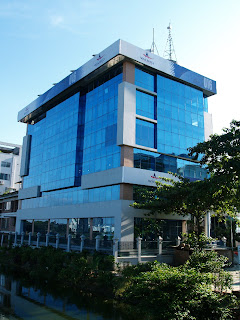It has been observed for a long time that the beautification of cities has been a project driven by the rich against the poor. Engels makes a great deal of reference to it in The Condition of the Working Classes, showing how the bourgeois of Manchester were keen to remove the repellent and filthy working classes from their sight so that that could walk in cleaner, greener cities for themselves. The enclosure of squares and greens in 19th century London to be turned into gentrified parks for promenading by wealthy Londoners, free from the inconvenience of the poor. Whilst in early modern times this was driven by public bodies influenced by the wealthy, but it seems that in the early 21st century age of hyperinternationalisation and increasing disparities between rich and poor, it is the corporation that is taking the lead in what Engels called ‘Haussmann policy’: the rhetorical construction of the poor as agents of environmental degradation and decay, and their subsequent physical removal to ‘beautify’ the city for those sophisticated enough to enjoy it.
Before (left) people lived on this marginal land. It is not clear where they have been moved to (Right).
On Banani lake, a small stretch of stagnant water sandwiched between the wealthy suburbs of Gulshan and Banani, it is Warid Telecom that is taking this lead. Warid are a new arrival in the Bangladeshi telecoms market, having launched to much fanfare in April. They are a Dubai based company and have aggressively attacked competitors Grameenphone and Banglalink.
Warid's new building
It is also apparent, however, that they are also attacking the poor of Banani who until very recently lived in squats along the edge of the lake. Warid has decided to do its bit – in the name of corporate social responsibility – and fund a beautification project for the lake. It has a new glass office standing on one bank, surrounded by nice shrubs and rock features, but clearly executives were appalled that their view was over a small family of informal dwellers huddled beneath an advertising hoarding.
The improvement scheme
Their solution has been to remove all those families living around the lake and replace them with much nicer herringbone walkways and flowerbeds, proclaiming the wonderful success of this urban ‘improvement’ terrorism on big billboards. Clearly the people whose entire lives were based on the small stretch of marginal land that they crammed into were not consulted, as they were hardly likely to suggest knocking down their shacks as a positive contribution to Dhaka.
So the story of urban environment improvement that has existed for some 200 years continues: the poor are blamed, removed and abandoned so that the empowered and enfranchised can enjoy the city that they see, forgetting about the increasing squalor and depravation that such actions bring about in the ‘insalubrious’ parts of the city. Warid, of course, seem to have no problem with this act of violence on the poor, just so long as they have something nice to look at in between selling sim cards to those very people that they have abanThe new improved lakeside
Of course, it could be worse: on the other side of the bridge, the RAB (notorious for their 3-a-day extrajudicial killings in the huge amount of ‘crossfire’ that characterises their engagements with the enemy) have their Gulshan check point. This consists of a bus shelter style construction in which lounge a number of this all in black, bandanna wearing paramilitaries. Apart from the RAB’s logo, proudly in the middle of the shelter, the rest of the shelter is covered in a huge advert for Nokia. Their slogan – ‘connecting people’ – is plastered across this building. A bad choice of sponsor, surely, for the RAB’s speciality is connecting people between this world and the next, or between a body and a bullet.
Perhaps this callousness is unique to the telecommunications industry, or perhaps its because whilst Nokia would not sponsor the National Guard in the US, or the Counter-Terrorist branch of the Met, it is much easier to be irresponsible in Bangladesh. After all, no one is watching, and no one need find out what you are up to. And seeing as the RAB stop everyone crossing that bridge to check them out, most will see the advert. When they have consumed that message, then they can admire the beautiful lake around them which Warid have created.




No comments:
Post a Comment